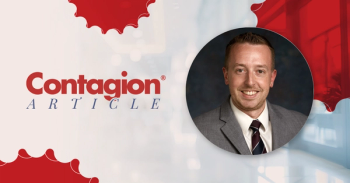
Rethinking Strategies to Reduce Healthcare-Associated C. difficile Infections
Belinda Ostrowsky, MD, MPH, Health Systems Director of Epidemiology, Antimicrobial Stewardship & Infection Prevention, Montefiore Medical Center, and Associate Professor of Clinical Medicine, Division of Infectious Diseases, Department of Medicine, Albert Einstein College of Medicine, discusses five stewardship strategies to help reduce healthcare-associated Clostridium difficile rates.
Belinda Ostrowsky, MD, MPH, Health Systems Director of Epidemiology, Antimicrobial Stewardship & Infection Prevention, Montefiore Medical Center, and Associate Professor of Clinical Medicine, Division of Infectious Diseases, Department of Medicine, Albert Einstein College of Medicine, discusses five stewardship strategies to help reduce healthcare-associated Clostridium difficile rates.
Interview Transcript (slightly modified for readability)
“We’re rethinking how we can best use stewardship to decrease [Clostridium difficile]. [In my presentation at the
There are strategies for picking what antibiotics that you have on your formulary, making sure that they may not necessarily predispose your patients to C. diff. Also, for some new drugs that are used for treatment of C. diff [there are several things to consider]: making sure that we steward these properly so that we have them and can use them; optimizing the treatment for C. diff so that that one patient can be treated; also decreasing C. diff in that patient may make it less likely that they’re going to transmit to other patients; and lastly, reviewing the medications at different points in the patient’s course, [by] looking at antibiotics before someone gets C. diff, and also look at antibiotics and other medications that may be given after someone has C. diff, [and] trying to make it such that they would be more likely that they would recover from the C. diff, which is good for them and also good for the patients near them so it isn’t transmitted to them.
I would say that we underscored 5 large areas where people can [make] an impact with stewardship and C. diff. [These] include optimizing the testing, optimizing your formulary, optimizing your treatment, optimizing the antibiotic choices before [infection with C. diff], and reviewing antibiotics and other medications after [infection], and then bringing it all together that stewardship is not really something that you just do in a vacuum, that this is part of a larger strategy, that C. diff is something [that is] multifactorial: it may come in your door on a patient, it may be that the patients need to be isolated, it could be transmitted within patients, or there may be things in the environment, or do we bread C. diff in patients by giving them too many antibiotics or other medications?
Really, we can’t just have one strategy, likely we’re going to need to do all these things. Luckily [antibiotic stewardship programs are] often a very good complement to these usual strategies. Hopefully we do all of these and we’re able to combat C. diff.
Just to bring it down to a home-level: this is a tangible outcome for physicians to see in terms of overuse of antibiotics. We’re not going to decrease all our antibiotic prescribing, this is not a ‘never’ event, like a line infection or a urinary tract infection. There are patients that really need antibiotics, what we’re trying to do is make sure that patients get appropriate antibiotics and that we don’t overuse them, and that maybe we strike that balance where [doctors] are able to treat the infection [without] killing the rest of the good flora in [patients], which is [what] protects [the patients] from C. diff.
I think we have amazing opportunities and the thing is that we certainly don’t want people to get C. diff in our institutions. Stewardship offers many strategies along the way to hopefully prevent patients from getting C. diff and prevent it being transferred to other patients in the environment.”
Newsletter
Stay ahead of emerging infectious disease threats with expert insights and breaking research. Subscribe now to get updates delivered straight to your inbox.
































































































































